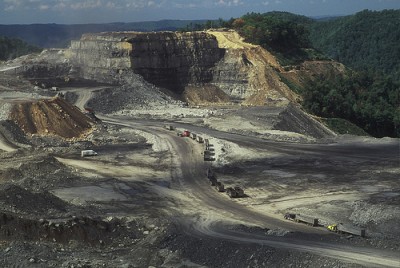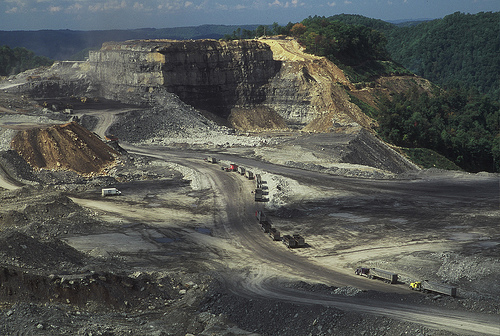 To mine-safety whistleblower and former director of the U.S. Mine Safety and Health Administration Jack Spadaro, the spills and mining accidents we have witnessed in recent months are entirely predictable.
To mine-safety whistleblower and former director of the U.S. Mine Safety and Health Administration Jack Spadaro, the spills and mining accidents we have witnessed in recent months are entirely predictable.
The BP Deepwater Horizon oil well blowout disaster in the Gulf of Mexico on April 20, a spill that has yet to be fully contained and cleaned up, with 11 workers killed, has grabbed the majority of the headlines. But the April 5 explosion of the Massey Energy coal mine in Upper Big Branch, West Virginia, the deadliest mining disaster in 40 years with 29 miners killed, is of particular concern to Spadaro.
That’s because Spadaro played a key role in an earlier investigation of Massey Energy. He believes, had his investigation and recommendations not been thwarted, those 29 miners might not have died. On the latest episode of my radio show, Earthbeat, Spadaro speaks out for the first time on the latest Massey coal disaster, government deregulation of the mining industry, and U.S. government officials who fired him for criticizing Massey’s failure to implement safeguards in an earlier incident: the discharge of toxic coal slurry — a spill at least 25 times larger than the Exxon Valdez oil spill — in 2000.
In that spill, more than 100 miles of streams were polluted, approximately 1.6 million fish were killed, and more than 27,000 people had their public and private water supplies contaminated. Spadero alleges that the same man who pushed him out under former President George W. Bush in 2000 for investigating Massey wrongdoing in the Martin County Coal Slurry Discharge spill in Martin County, Kentucky is now playing a key role in the investigation of the Massey coal mine explosion in 2010.
Jack Spadaro is no stranger to controversy. With over two decades as one of the federal government’s top mine-safety engineers, he has survived a 1980s Special Counsel who tutored Reagan’s Department of Interior Secretary James Watt in how to fire him. The case became infamous, because then Special Counsel (OSC) Alex Kozinski overruled his staff’s recommendation to stay the termination, and then repeatedly tutored Watt’s attorneys in how to rewrite the proposed termination to pass legal muster. When the truth about the abuse of power by the OSC under Kozinski came out several years later during confirmation hearings for Mr. Kozinski’s Ninth Circuit Court of Appeals nomination, the scandal drew 43 Senate opposition votes and subsequently prevented Kozinski’s planned upgrade to the Supreme Court.
On Earthbeat, Spadero shares his concerns about the inadequate number of well-trained health and safety inspectors for the country’s mines, and suggests that better mine safety inspections could have prevented the Massey mining accident and others but for political interference from administration officials in league with coal state senators.
